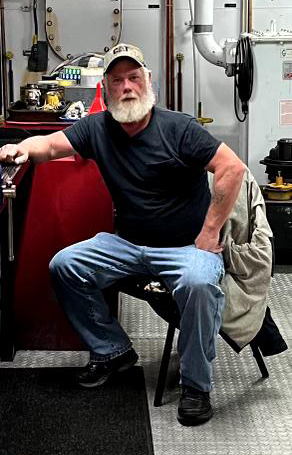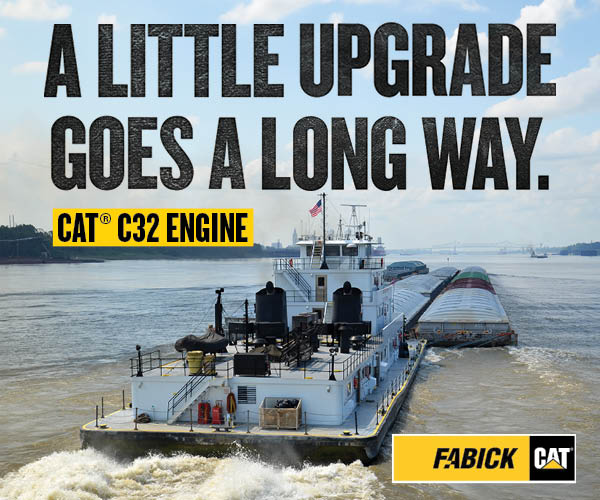Engineer Profile: James Carnes, Marquette Transportation

Marquette Chief Engineer James Carnes comes from a long-standing river family, with a father and grandfather who were both river captains and pilots. But he resisted the river’s call until he was 26. “I didn’t want to go on the river at first,” he told The Waterways Journal, not liking the amount of time it took away from family. Carnes grew up in a small community outside of Metropolis, Ill., and still lives nearby in the small town of Brookport.
When he finally went on the rivers, he began decking, but quickly made a decision: “I knew right away the deck wasn’t for me.” But he remembers someone telling him, “By the time you wear out your first pair of boots on the rivers, you’re hooked.”
“I always liked tinkering with anything mechanical,” Carnes said. “I grew up tearing things apart and putting them back together.”
So he wound up in Marquette’s engineer training program, which took two years.
“They began with the basics, making sure you could swap out generators and load fuel,” he said.
Carnes has spent his whole career with Marquette—34 years. Although he estimates he has worked on 13 or 14 boats overall, for the past 25 years, since it was launched, he has served as lead engineer of the mv. Kay A. Eckstein. Built by Quality Shipyards in Houma, La., its two Caterpillar 3612 engines have been tended by Carnes ever since. The Kay A. Eckstein mostly traverses the lower Ohio River.
Carnes has worked with Ballwin and EMD engines but admits that Caterpillars—like the ones on the Kay A. Eckstein—are his favorite.
“I’ve been on Cats since 1992,” he said.
All Marquette boats with Cat engines have trainees in addition to engineers.
Carnes is proud to have grown with Marquette, noting its strong family atmosphere.
“Marquette started out small, and now it’s one of the biggest operators on the rivers,” he said.
One reason for its success, he said, is that “Marquette invests in its people.” Carnes credits port engineer David Fields with being an important mentor for him.
“He was my port engineer, and he helped me a lot,” he said. “He encouraged a lot of the younger guys, and his legacy is still going strong.”
Carnes has seen a lot of changes in his decades of engineering, including the shift from analog to digital controls.
“Everything has gotten safer for the younger guys,” he said. “Technology has come a long way.”
And not just technology.
“When Subchapter M kicked in, that made a lot of things easier on engineers,” Carnes said. “It brought you to a higher standard.”
When he’s not on the boat, Carnes enjoys fishing and bow hunting for deer, as well as taking care of his yard. He explains that the shotgun deer season lasts only a few days, while the bow hunting season lasts from October through January.
Engineering has provided a good life for Carnes. What would he tell young people today?
“Just try the river life, see if you like it,” he said. “Give the industry a chance. You can make it what it is. Marquette will work with you and support you when things come up.”



